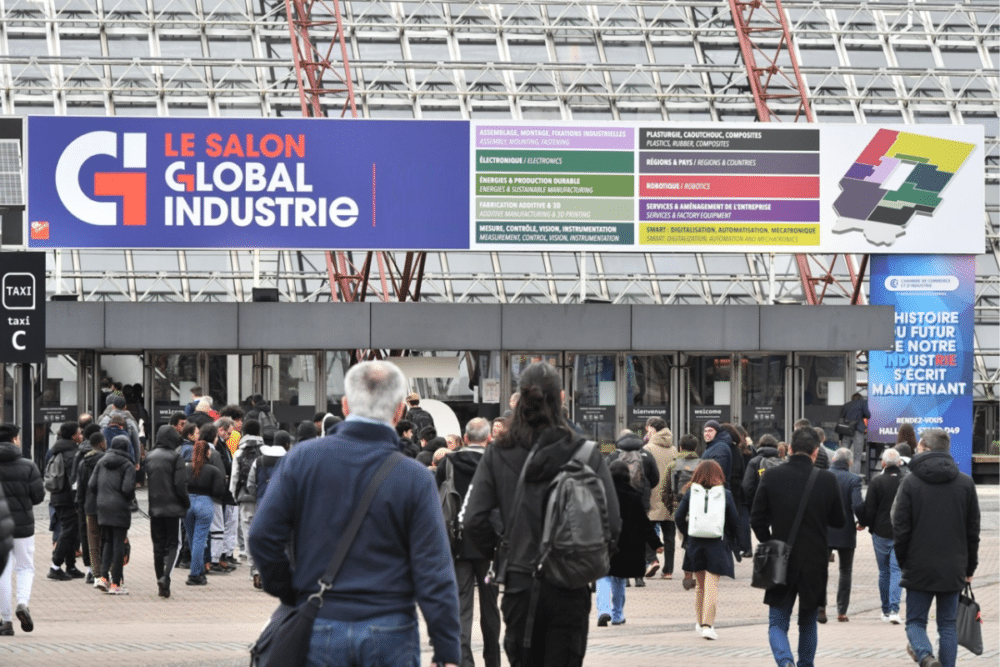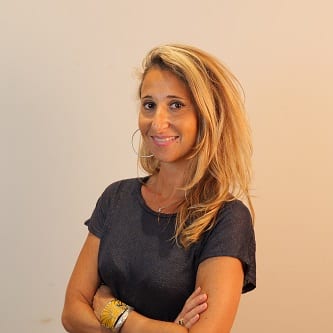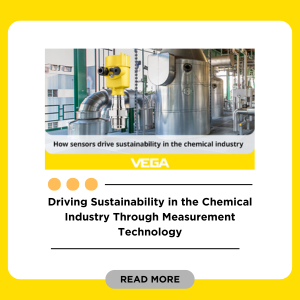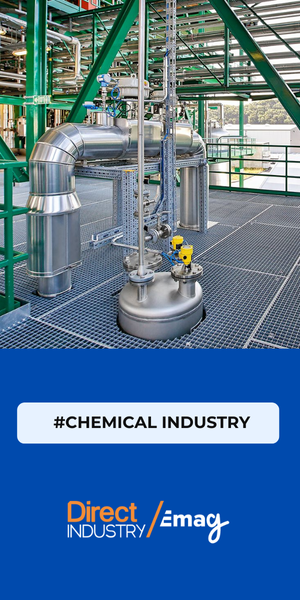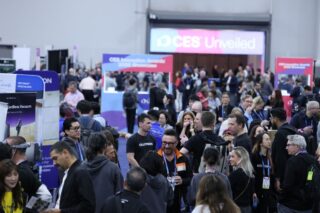Economic slowdown, sluggish reindustrialization, restructuring plans, crisis in Europe… This new edition of Global Industrie, the leading French trade show championing the country’s industry, will open in March in a very gloomy French and, more broadly, European economic context. After a successful 2024 Paris edition, fueled in part by the Olympic context, GI returns this year in Lyon with a clear mantra from its president, Sébastien Gillet: “We won’t give up!“
The Global Industrie trade show will take place in Lyon from March 11 to 14, 2025. The event takes place each year, alternating between Paris and Lyon.
2,500 exhibitors are expected, and 3,000 machines will be in operation. The organizers also anticipate 50,000 industry professionals attending the event.
Last year’s edition shone brightly, particularly by showcasing industrial technologies applied to the world of sports. This time, the situation is different. The industrial and economic climate is far less favorable, with factory closures and restructuring plans making headlines in French media. How are you approaching this new edition of Global Industrie?
Sébastien Gillet: “First of all, we’re in Lyon this year, which is different from Paris. While the theme remains the same and 70% of exhibitors are the same, only 4% of visitors overlap between the two locations. Lyon attracts a more targeted audience, with visitors primarily consisting of end users and factory-based professionals. This clearly validates our alternating format, as Paris and Lyon are the two main industrial hubs in France. Just as agriculture has its Salon de l’Agriculture, industry now has its showcase, and that’s something we’re very proud of. Global Industrie has truly become the voice of industrial players. This was clearly illustrated by the introduction of the Grand Stage, a major new feature in Paris that will be present in Lyon as well. This platform allowed top executives, policymakers, and even Olympic athletes to share their insights and experiences on France’s reindustrialization efforts.
Our first mission for 2025 is to maintain the high standards we’ve set and keep Global Industrie the flagship event for the industrial sector. The second priority is, as you mentioned, navigating a more challenging economic climate. Our mindset is: We won’t give up. We won’t let up on the progress made over the past decade. We must continue the efforts to reshape the image of industry. A country without industry is a country in decline. It was a mistake, 30 to 40 years ago, for France to transition from an industrial economy to a purely service-based one. But there’s no point in rewriting history. For the past ten years, public authorities have finally recognized the importance of reindustrialization. Now, we must stay the course. We can’t afford to reverse the progress made in bringing manufacturing back to France.”
Reshoring was indeed a major focus for a long time at Global Industrie—we all truly believed we were going to bring manufacturing back or at least relocate factories closer to Europe. We were promised dozens of gigafactories that would manufacture the batteries for our electric vehicles. But in reality, it’s far from a done deal. So, how will this be addressed?
Sébastien Gillet: “It’s true that today, we are seeing layoffs and social plans, and the overall messaging isn’t necessarily the most optimistic. Reshoring hasn’t happened on the scale that was promised by the French President, but some initiatives have taken place. Some factories have indeed returned to France. And there’s something that rarely gets mentioned in mainstream media, and I hope we can highlight it in this edition. There are dozens of factories reinvesting in the country—whether in the agri-food sector, naval industry, or medical field. For example, Pierre Fabre is investing €70 million in a new logistics platform near Toulouse. That investment creates jobs. John Deere is investing €105 million over five years in the Loiret. Cité Marine, a French leader in food production, is planning a €32 million investment in the Hauts-de-France region. Naval Group is continuing its investment program in Brest with €63 million allocated to the site. No one ever talks about these projects. Of course, building new factories is crucial. But the companies that are investing tens of millions of euros today are also creating jobs and securing the future of French industry.”
Will this perspective be discussed at the trade show?
Sébastien Gillet: “I believe that if we truly adopt this “never give up” mindset, we need to make sure it’s heard. I will personally make sure to highlight it. I’m not blind—I see that reshoring is happening at a slower pace than expected. But there are companies that are making the choice to stay in France. For this 2025 edition, I will do everything I can to ensure that this message is heard. This, too, is part of the reindustrialization of France.”

So, what are the key themes this year compared to last year in Paris?
Sébastien Gillet: “The main topics remain the same—decarbonization, reindustrialization, job attractiveness, gender diversity, and engaging young talent. The key questions are: How can we produce better? How can we reduce waste? How can we strengthen CSR initiatives? These are concerns that industrial players have already been addressing for some time. But above all, the focus is on resilience. We need to move away from this negative messaging and start highlighting what is being done well to support the industry.”
Will there be keynotes from major industry leaders?
Sébastien Gillet: “Yes, absolutely. The CEO of EDF will be speaking on Tuesday, and we’ll also have the CEO of Schneider Electric sharing his insights. It’s crucial to have these industry leaders discussing the future of our sector. We will continue to champion this message on the main stage, but that’s just one aspect of the event. More than anything, I want to emphasize the spirit of resilience—because let’s face it, our industrial players are not always competing on a level playing field with the rest of the world.”
One of the key topics in the industry today is AI. How will this theme be addressed at Global Industrie this year?
Sébastien Gillet: “Each year, we strive to introduce new sectors that were not historically covered but are becoming increasingly relevant. AI is one of them. Last year, we had a 5G Village that included some AI applications. This year, we are expanding it into an entire city that will host between 25 and 30 companies. AI will be a key discussion point, focusing on its massive potential within factories. However, we also have an educational role to play. AI can be intimidating for small businesses so it’s important to reassure them about how AI complements human work and drives productivity gains. Additionally, we will introduce a new logistics and material handling hub, as these are crucial aspects of modern factories. This new area will bring together more than 70 companies.”
One exciting new feature is a special showcase for “Made in France” products. Can you tell us more about it?
Sébastien Gillet: “Yes. We shouldn’t be ashamed of our French expertise, as we were for decades. There are industries we’ve managed to preserve and excel in, and we want to highlight them in this edition. For example, the Toyota Yaris, which is manufactured in northern France, will be on display. We’re also in discussions to feature the new Renault 5.”
I see that you’re increasingly communicating in English. Are you attracting more European visitors? Do you see Global Industrie becoming a must-attend event for Italian or German manufacturers, for example?
Sébastien Gillet: “We now have over 30% of exhibitors from abroad, companies that neither have subsidiaries nor parent companies in France. This number is growing—not drastically, but by about 3 to 5% compared to 2024. On the visitor side, we expect around 11% to come from outside France. The fact that more international exhibitors are now choosing France suggests that the structure, organization, and positioning of Global Industrie are generating more interest.”
How does Global Industrie differ from other European trade shows?
Sébastien Gillet: Unlike other European trade shows, Global Industrie brings together a complete industrial ecosystem. In Germany, for instance, EMO is dedicated solely to machine tools, with no subcontractors. Hannover Messe doesn’t include machine tools. Our event, while perhaps smaller—110,000 square meters, less than some German exhibitions—uniquely integrates all elements of the ecosystem: SMEs, large corporations, solution providers, manufacturers, subcontractors, and startups. You won’t find this comprehensive mix anywhere else. These two factors—our diverse exhibitor base and the comprehensive nature of the event—help explain why we continue to thrive in the industrial trade show market.”
Is Global Industrie more resilient than other European events, like those in Germany and Italy?
Sébastien Gillet: “France has an incredibly diverse industrial landscape. We have expertise in sectors such as nuclear energy, aeronautics, automotive, food processing, and medical industries. When compared to Germany, which is heavily automotive-focused, we are less reliant on any one sector. For example, when the automotive industry struggles—especially with the shift to electric vehicles—our French exhibitors and manufacturers are not as exposed. This diversification makes us more resilient. According to the exhibitors, the 2024 trade shows in Germany and Italy weren’t particularly successful. This may make our edition in Lyon even more significant, as we are holding the event during a challenging time, which could contribute to higher expectations for this year’s show.”
Given the current context with the new American administration and the threat of tariffs, don’t you think there is a need to move more towards Europe? For example, why not have Global Industrie alternate between France, Italy, Germany to truly promote a European industry?
Sébastien Gillet: “It’s complicated. If you ask me if I want Global Industrie to take place in Italy or Germany, I would say yes. But in Germany, they already have all the largest trade shows that cover sectors present at Global Industrie. Germany, in any case, wouldn’t look kindly on Global Industrie coming to Düsseldorf, Nuremberg, Frankfurt, or Hannover to offer the kind of exhibition we currently provide. Even though you’re right, in Europe we are all fighting for the same things. We can have the ambition to say that in the future, Global Industrie should expand to neighboring countries to defend the industry, but the reality is, that’s not really possible. Let’s make sure that our Global Industrie, which already meets the needs of industrialists, continues to do so, keeps growing, and brings people together in this 2025 edition.”
What do you think of Vivatech, which is gaining more and more momentum? Is it a competitor or complementary?
Sébastien Gillet: “It’s essential, but for a specific type of audience. Today, if you’re an industrialist or a machine tool manufacturer, you might attend Vivatech out of curiosity, but not to learn anything. Vivatech is a trade show that targets the general public. We’re B2B, we’re in the industry, and I can tell you that when we get 45,000 visitors at Global Industrie, we have about 80% of the industrial audience we need in France. Vivatech announces 125,000 visitors, and you’ll definitely get a lot of people who come out of curiosity, especially with celebrities attending – that certainly helps attract more people. For me, Vivatech is not a competitor; it should be complementary. It needs to exist within the trade show world because if we don’t host events on tech or talk about tech, we’ll miss that shift, just like France missed other industrial shifts 30 years ago. So, it would be a mistake not to do it. We talk indirectly about tech, but it’s not the main subject of Global Industrie.”
You’ve really stepped up your presence on social media, so it’s no longer just at the time of Global Industrie that we hear about it. Now you’re trying to talk about industry year-round. Is that your new strategy to occupy the space, not just in March, but throughout the year?
Sébastien Gillet: “The entity I manage handles all industrial trade shows. We’re already active in the territories with SEPEM. [The SEPEM Industries trade shows are a series of regional industrial trade fairs in France. They cater to industrial professionals across all sectors, with a strong focus on innovative solutions for production, maintenance, safety, and the environmental management of manufacturing sites.] It’s important because it helps us stay in touch with the industry. When we say we are the voice of industry, it’s not just a nice slogan. We communicate with more than a million industrial professionals. We have over 120,000 visitors across all our trade shows, and we engage with over 7,000 industrialists who exhibit at our events. If today we only focused on three or four days a year, I think we’d be making a mistake. Those were the types of trade shows we had 15 years ago, where there wasn’t really a need to talk about industry throughout the year. Global Industrie remains the moment, during those four days, when we can focus and bring everyone together. But in between, we must be the link and the voice of French industry. Yes, social media is a tool to keep the conversation about industry and what’s happening throughout the year.”
